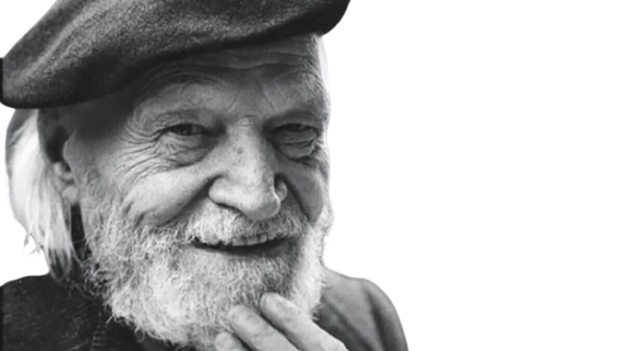

Translated from Italian by Geoffrey Brock.
VIGIL
All night long
flung beside
a butchered
comrade
his teeth
bared
to the full moon
the bloating
of his hands
entering
my silence
I wrote
letters full of love
I’ve never felt
so fastened
to life
Peak Four, December 23, 1915
DETACHMENT
Behold a uniform
man
behold a desert
soul
an impassive mirror
for the world
Sometimes I wake
and join forces
and possess
The rare good that grows in me
how slowly it grows
And when its time has come
how numbly it fades
Lokvica, September 24, 1916
JUNE
When
this night
has died in me
and I can see it
as another might
and can fall asleep
to the rustle
of waves
that finish
their rolling
at the row of acacias
outside my house
by the sea
When I have woken
in your body
that modulates
like the voice of a nightingale
attenuates
like the bright
gleam
of ripe wheat
And in the clarity
of water
the gold of your butterfly
skin
frosts brown
and balanced
by the shrill
slabs
of the air
you become like
a panther
and in the shifting
slants of shadow
shed your leaves
and mutely roaring
smother me
Then you’ll narrow
your eyes
and we’ll see
our love
lie back
mild
as the evening
and my pupils
will lose
their shine
in the pitch horizon
of your irises
Now the clear sky
has closed up
as jasmine does
at this hour
in my far off
country
in Africa
And sleep
has slipped away
and I flicker
like a
roadside
firefly
When
will this night
die in me
Campolongo, July 5, 1917
Giuseppe Ungaretti (1888-1970) was born in Alexandria to Italian settlers – his father was a laborer working on the Suez Canal and his mother ran a bakery. In 1912, Ungaretti left Egypt for Paris to study at the Sorbonne, where he befriended Guillaume Apollinaire, Paul Valéry, Picasso, Braque, and Léger. Ungaretti wrote his first book of poetry while serving in the Italian Army in World War I. Much later, after the death of his nine-year-old son, Ungaretti published a collection of poems, Il dolore, which expressed both tragic personal loss and horror at the atrocities of Nazi Germany. His other poetry collections include Morte delle stagioni (Death of the Seasons), La terra promessa (The Promised Land), and Sentimento del tempo (The Feeling of Time). As a correspondent for Gazzetta del Popolo, Ungaretti wrote a series of semi-autobiographical essays revisiting his birthplace in Egypt. Ungaretti also translated into Italian a collection of Shakespeare’s sonnets, poetry by William Blake, and Racine’s Phèdre, among other works. T. S. Eliot considered Ungaretti “one of the very few authentic poets of my generation” and Ingeborg Bachmann claimed he revolutionized Italian poetry. He died in Milan in 1970.
Geoffrey Brock is an American poet and translator. In 1999, Brock received the Raiziss/de Palchi Translation Fellowship from the Academy of American Poets for his work on Cesare Pavese’s poetry. The resulting volume, Disaffections: Complete Poems 1930-1950 (2002), received the MLA’s Lois Roth Translation Award and the PEN Center USA’s Translation Award, and was named one of the “Best Books of 2003” by the Los Angeles Times. Brock has edited three anthologies on Italian poetry and translated the work of Italo Calvino, Roberto Calasso, Umberto Eco, Umberto Saba, Giuseppe Ungaretti, and others. Brock’s poetry has been featured in several anthologies, including Best American Poetry 2007, and his books, Weighing Light(2005) and Voices Bright Flags: Poems (2014) have received the New Criterion Poetry Prize and Anthony Hecht Poetry Prize, respectively. His translations have appeared in magazines such as Poetry, Paris Review, and The New Yorker, and he has received fellowships from the National Endowment for the Arts, the American Antiquarian Society, the Arizona Commission on the Arts, the Florida Arts Council, the Guggenheim Foundation, and Stanford University. Since 2006, Brock has taught in the creative writing and translation programs at the University of Arkansas, Fayetteville.
These poems from Allegria are published by permission of Archipelago Books. Copyright © Giuseppe Ungaretti, 1969. English language translation © Geoffrey Brock, 2020.
Published on October 13, 2020.




